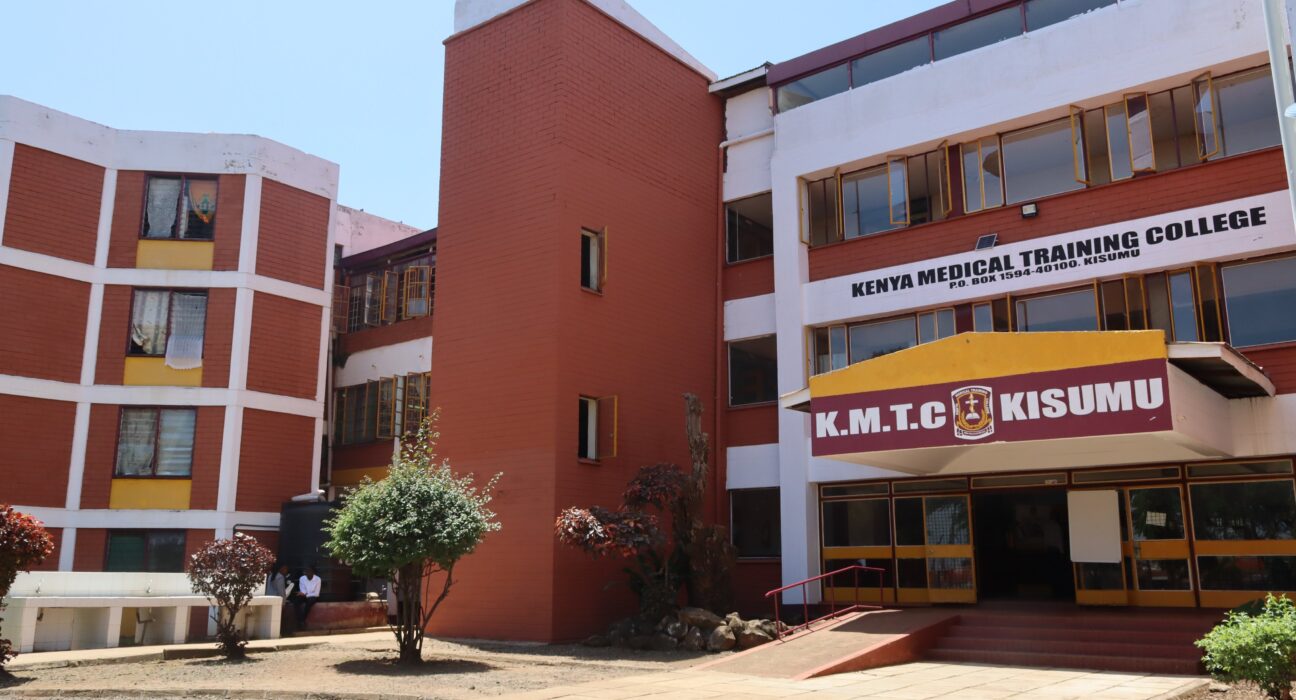For students who have achieved a D+ grade or below in the Kenya Certificate of Secondary Education (KCSE), the healthcare sector offers numerous opportunities to advance their careers and contribute to public health. The Kenya Medical Training College (KMTC) provides a wide range of programs tailored for students with lower grades, offering practical and specialized training to meet the needs of the growing healthcare industry.
The beauty of KMTC courses lies in their focus on practical skills and quick employment opportunities in health-related fields. From emergency medical care to nutrition, students with a D+ grade and below have an array of courses to choose from, making it possible to build a fulfilling career in healthcare without the need for high academic qualifications.
In this article, we will explore some of the best KMTC courses available for D+ and below students, including entry requirements, career paths, and the skills students will acquire during their training.
1. Certificate in Nutrition and Dietetics: Promoting Healthy Living
For those passionate about food and health, Nutrition and Dietetics is a perfect course. This program introduces students to the role of food in human health and how diet can be used to prevent and treat diseases. Graduates of this course are equipped with the skills to work as nutrition assistants, helping individuals and communities make healthier food choices.
Entry Requirements:
- D+ in KCSE.
- D in English or Kiswahili.
- D in Biology.
- D in Chemistry or Physics.
This course is an excellent entry point for students interested in working in hospitals, wellness centers, or public health programs where nutrition is a key element of health promotion.
2. Certificate in Health Records and Information Technology: Managing Healthcare Data
With the increasing role of technology in healthcare, Health Records and Information Technology offers a great opportunity for students interested in health administration and IT. This course focuses on the management of medical records and health information systems, ensuring that patients’ data is accurately recorded and easily accessible.
Entry Requirements:
- D+ in KCSE.
- D+ in English or Kiswahili.
- D in Biology.
- D- in Mathematics.
Students will learn how to handle health data, maintain medical records, and use technology to improve the efficiency of healthcare institutions. Graduates can work as health information assistants, records clerks, or data entry operators in hospitals and health centers.
3. Certificate in Health Records and Information Technology (In-Service Category): Enhancing Skills for Healthcare Workers
The In-Service version of the Health Records and Information Technology certificate is designed for individuals who are already working in the healthcare sector but lack formal qualifications in health records management. This program offers a chance for existing healthcare staff to upgrade their skills and gain professional certification.
Entry Requirements:
- D+ in KCSE.
- D+ in English or Kiswahili.
- D- in Mathematics.
This program is ideal for those who are already employed in healthcare facilities but wish to improve their qualifications and gain better career opportunities in health data management.
4. Certificate in Public Health: Fighting Disease at the Community Level
A Certificate in Public Health is a great option for students with a D+ grade and below who wish to contribute to disease prevention, sanitation, and health education in communities. Public health professionals are essential in addressing health issues at the community level, such as controlling epidemics, promoting hygiene, and educating people about health risks.
Entry Requirements:
- D+ in KCSE.
- D+ in English or Kiswahili.
- D in Biology.
- D in Mathematics.
- D in any of the following: Home Science, Physics, Chemistry, Agriculture, or Building Construction.
Graduates of this course can work as public health assistants, participating in health education campaigns, disease prevention programs, and other community health initiatives.
5. Certificate in Community Health Nursing: Caring for Communities
For those interested in nursing, Community Health Nursing is a course that focuses on delivering healthcare services at the community level. Community health nurses provide primary care, health education, and promote healthy living in underserved areas, making this course an excellent choice for students with a D+ grade.
Entry Requirements:
- D+ in KCSE.
- D+ in English or Kiswahili.
- D+ in Biology.
- D in Chemistry, Physics, or Mathematics.
Graduates can work as community health nurses in rural and urban communities, assisting in vaccination programs, maternal and child health, and other public health initiatives.
6. Certificate in Medical Emergency Technician: Responding to Crises
For students interested in working in emergency care, the Certificate in Medical Emergency Technician is an excellent option. This course trains students to provide immediate medical care in critical situations, such as accidents, injuries, or medical emergencies. The role of an emergency medical technician (EMT) is crucial in saving lives and stabilizing patients before they can be transferred to medical facilities.
Entry Requirements:
- D+ in KCSE.
- No specific subject requirements, making this an accessible course for many students.
Graduates can work in ambulances, hospitals, and disaster response teams, providing life-saving assistance in emergency situations.
7. Certificate in Medical Engineering: Bridging Technology and Healthcare
For students with a passion for both healthcare and technology, Medical Engineering is an ideal course. This program trains students to repair and maintain medical equipment, ensuring that healthcare facilities have functional tools to treat patients effectively. Medical engineers play a vital role in keeping hospitals and clinics operational.
Entry Requirements:
- C- in KCSE.
- C- in English or Kiswahili.
- D in Mathematics.
- D- in Physics.
- D in any of the following: Chemistry, Biology, or Technical Drawing.
Graduates can work as medical equipment technicians in hospitals, clinics, and medical supply companies, ensuring the proper functioning of medical tools and devices.
8. Certificate in Orthopedic Trauma Medicine: Specialized Trauma Care
The Certificate in Orthopedic Trauma Medicine is designed for students interested in working in trauma care, particularly related to bone and joint injuries. This course teaches students how to handle fractures, dislocations, and other orthopedic injuries, making it an ideal choice for those interested in emergency and specialized healthcare.
Entry Requirements:
- D+ in KCSE.
- D+ in English or Kiswahili.
- D+ in Biology.
- D in Mathematics or any technical subject.
Graduates can work as orthopedic assistants, helping doctors in treating injuries, assisting in rehabilitation, and supporting trauma patients.
9. Certificate in Community Health Assistant: Supporting Public Health Efforts
The Certificate in Community Health Assistant provides a vital role in supporting healthcare delivery at the grassroots level. Graduates of this course will help healthcare teams with essential community health tasks such as health screenings, maternal care, and disease prevention education.
Entry Requirements:
- D+ in KCSE.
- D+ in any language.
- D in Biology.
- D in any of the following: Chemistry, Physics, Mathematics, Agriculture, or Home Science.
Graduates can work in health outreach programs, community clinics, and health departments, providing healthcare support in local communities.
Starting Your Healthcare Career with KMTC
KMTC offers a variety of accessible and practical healthcare courses for students with D+ and below grades. These courses offer a direct pathway into healthcare careers, where students can make a significant impact on public health in Kenya. Whether you’re interested in nutrition, emergency care, public health, or medical engineering, KMTC provides the training needed to thrive in the healthcare sector.
By completing these programs, students gain valuable skills that enable them to enter the workforce quickly and start making a difference in healthcare facilities, communities, and the broader society.





